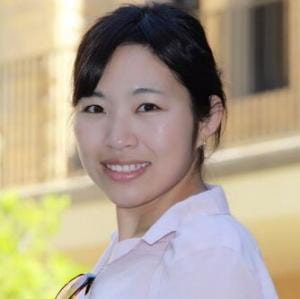Our Research
The researchers in the Center for Early Childhood Research use innovative and varied methods to investigate the early development of critical abilities, including language, social understanding, mathematical and spatial abilities, higher order thinking skills, empathy, and moral reasoning.
Chatter Lab
 Marisa Casillas
Marisa Casillas
Assistant Professor of Comparative Human Development
How do everyday activities shape language learning? How does language learning vary across cultures?
We study how children and their families use language to communicate about everyday topics. We conduct this research with children in culturally and linguistically diverse communities. Our goal is to illuminate how the human mind can support language learning across all these diverse communities.
The Child Neurosite
Jean Decety
Irving B. Harris Distinguished Service Professor
How is a child’s sense of right and wrong affected by their genes, brains, and behavior?
In the Child NeuroSuite, we examine children’s developing understanding of social and moral behavior. We use EEG, eye-tracking, and genetic information, along with behavioral tasks, to look at the different factors that affect children’s moral development.
Cognitive Development Lab
 Susan Levine
Susan Levine
Rebecca Anne Boylan Professor in Education and Society
How do early life experiences affect development?
We look at how children interact with their parents and teachers to understand the ways that children learn from adults, focusing on math and spatial learning. We also study long-term development in children who experienced prenatal brain injuries.
Development of Social Cognition (DSC) Lab
Katherine D. Kinzler, Ph.D.
Professor of Psychology
Chair, Department of Psychology
Katherine D. Kinzler is a Professor of Psychology and Deputy Dean of the Social Sciences at the University of Chicago. Her research sits at the intersection of developmental and social psychology. Her work focuses on the origins of prejudice and ingroup/outgroup thinking, with an emphasis on understanding how language and accent mark social groups. She is also interested in food cognition and moral psychology.
Professor Kinzler joined the faculty of the University of Chicago Department of Psychology in 2008, as a Neubauer Family Assistant Professor. She spent 2015-2019 at Cornell University, where she was most recently the Chair of the Department of Psychology. She completed her B.A. at Yale in Cognitive Science, her Ph.D. at Harvard in Psychology, and she was a Fulbright Scholar at the École Normale Supérieure in Paris. Her research has been funded by the National Institutes of Health and the John Templeton Foundation. Her work has appeared regularly in the New York Times and other media outlets, and she was named a “Young Scientist,” one of 50 scientists under age 40 recognized by the World Economic Forum.
Please visit the Development of Social Cognition Lab for current projects, collaborators, and media.
Contact: kinzler@uchicago.edu
Developmental Investigations of Behavior and Strategy (DIBS) Lab
Associate Professor of Psychology
How do kids decide what is fair?
Kids learn the importance of sharing from an early age. Just like adults, children are concerned with what others think about them. How do children understand what fair behavior looks like? How do children change their own behavior to affect the way that others think about them?
EArly Social Thinkers (EAST) Lab
Lin Bian, PhD.
Assistant Professor of Psychology
Goldin-Meadow Lab
 Susan Goldin-Meadow, Ph.D
Susan Goldin-Meadow, Ph.D
Bearsdley Ruml Distinguished Service Professor
What are the foundations of language and communication? How do gestures and words affect learning?
We’re interested in studying gesture and language. A main focus of our lab is Nicaraguan Sign Language (NSL), which is a relatively new language, and the similarities and differences between NSL and the signs that deaf babies create before being exposed to sign language. We’re also interested in how gestures help children learn.
Human Nature and Potentials Lab
Fan Yang, PhD.
Assistant Professor of Psychology
How do we achieve optimal experience and realize full potential?
Infant Learning and Development Lab
 Amanda Woodward
Amanda Woodward
William S. Gray Distinguished Service Professor of Psychology
Dean, Division of the Social Sciences
How do babies and children understand social behavior?
We’re interested in how babies learn and grow, especially using input from parents and caretakers. We’re curious about the ways that culture and social context affect children’s learning and development.





